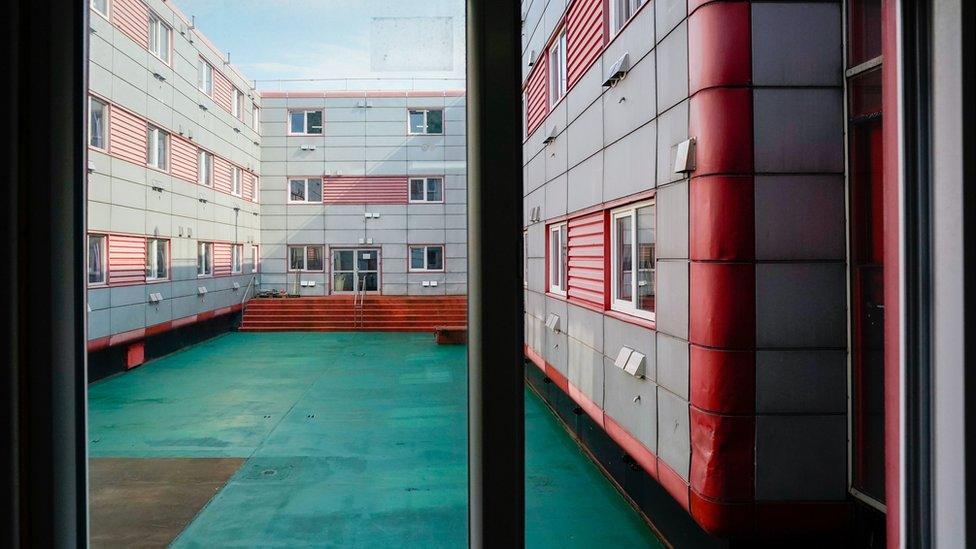What is the Bibby Stockholm and why is it controversial?
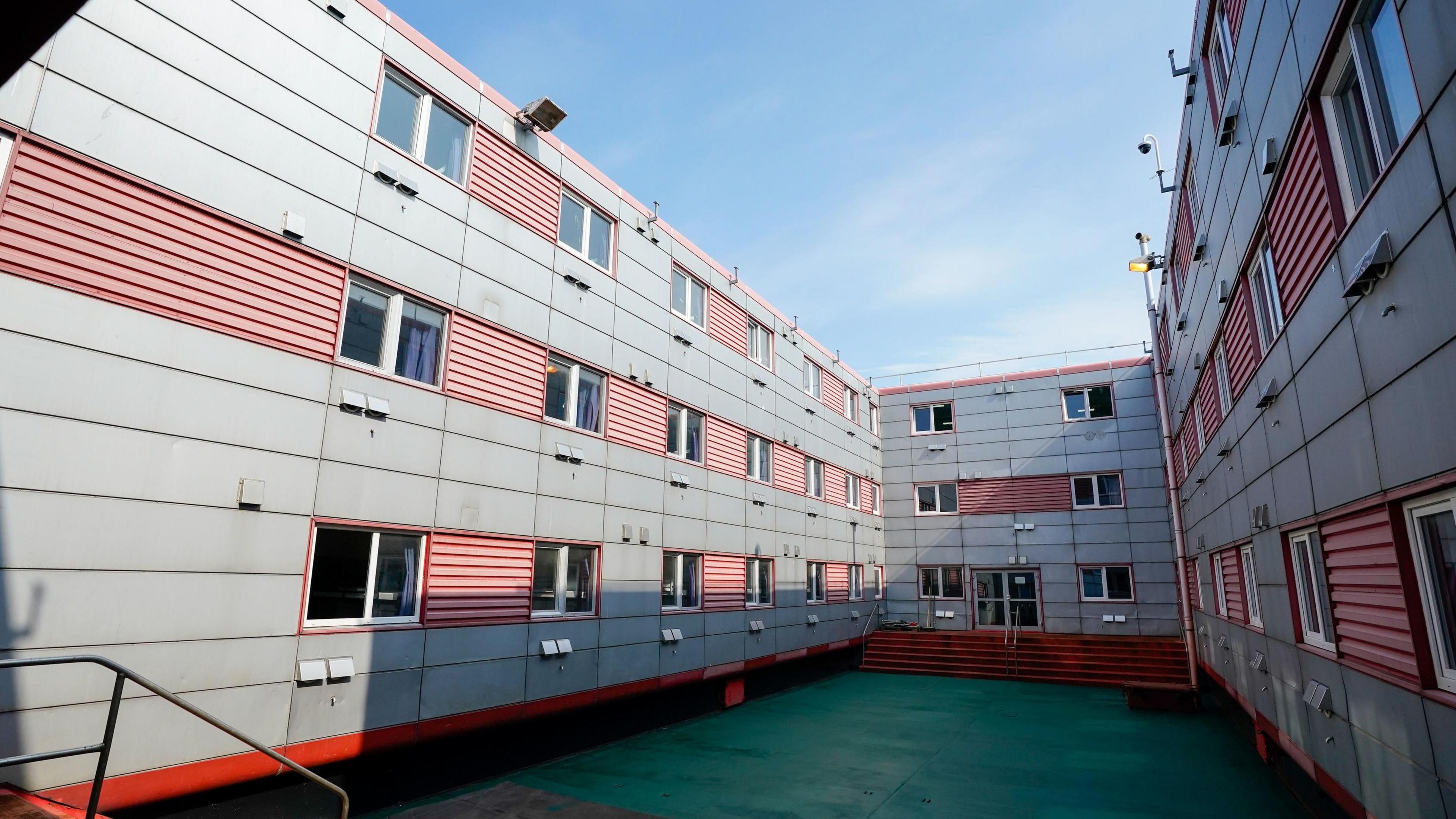
The Bibby Stockholm first docked in Portland in July 2023
- Published
As asylum seekers on board the Bibby Stockholm are being moved off to a variety of locations across the country, the migrant barge has once again hit the headlines.
It has been over a year since it first moored off the Portland coast but why has the vessel proved so controversial?
What is the Bibby Stockholm?
The Bibby Stockholm is a barge used to house male asylum seekers while they await a decision on whether they can stay in the UK.
Since before it docked in Portland in July 2023, the barge has faced controversy, with some locals on Portland claiming they had not been consulted.
Traces of Legionella bacteria were found in the vessel's on-board water system, just days after the first asylum seekers boarded in August 2023.
Welfare concerns were also sparked after Albanian national Leonard Farruku, 27, was found dead in his cabin. He was thought to have taken his own life.
The government said everyone on the barge had been provided with "adequate, functional accommodation" which met all relevant legal requirements, external.
Its closure was announced in July.
Why did the government begin to use the barge?
Bibby Stockholm was the first vessel secured under then Home Secretary Suella Braverman's plans to reduce the cost of asylum accommodation by housing asylum seekers on barges.
At the time, the Conservative government said it was spending £6m per day housing more than 50,000 migrants in hotels.
In 2023, then Prime Minister Rishi Sunak's spokesman said: "We think it is better to open specific sites designed to house immigrants that come in, done in a more planned way.
"That's what we are seeking to do with the Bibby Stockholm and that's what we're seeking to do in other parts of the country - opening up sites to take the pressure off local areas and to reduce the cost."
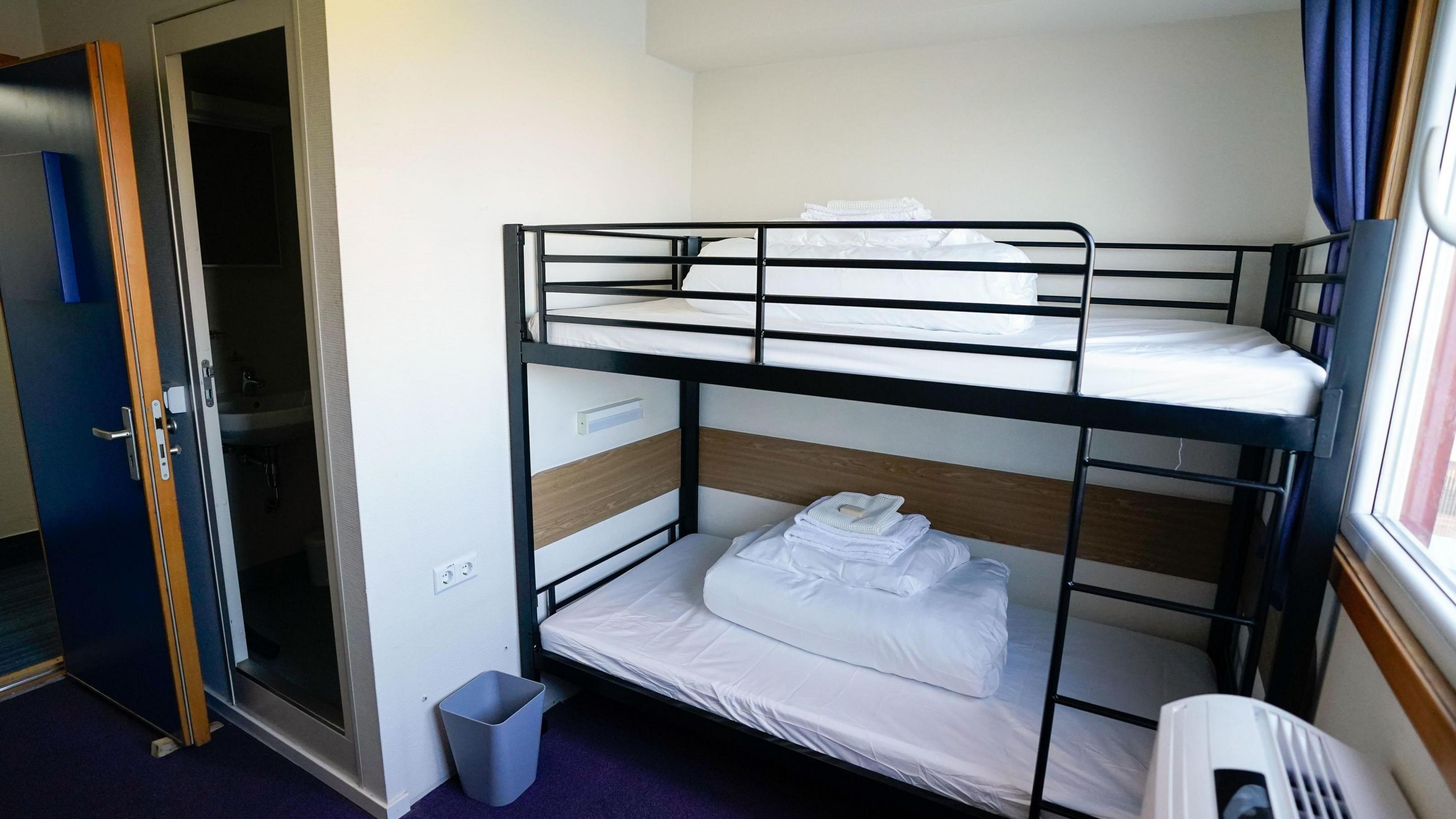
Residents and campaigners did complain about conditions on board with reports of insects in food and bed bugs
Why has the Bibby Stockholm been controversial?
There was considerable local opposition to the Bibby Stockholm before it docked, amid fears about the impact a possible 500 asylum seekers could have on local services in Portland, like healthcare and also about the conditions in which residents would have to live in on board.
More than 50 national organisations and campaigners, including the Refugee Council, Asylum Matters and Refugee Action, called the government plan "cruel and inhumane". They said the vessel was "entirely inappropriate" and would house traumatised migrants in "detention-like conditions".
Dorset Police said they expected the barge to have no impact on local crime levels, and Dorset Council - while saying it had no choice but to accept the barge - said it could protect services thanks to an extra £1.7m government grant.
The Home Office said it will support the migrants' welfare by providing basic healthcare, organised activities and recreation.
However, residents and campaigners bemoaned conditions on board. There were claims of insects in food, bed bugs and an outbreak of Legionella.
There were complaints the barge was a "quasi-prison".
One resident, Leonard Farruku, was found dead on the vessel. He is believed to have taken his own life.
When will it leave Portland?
The Bibby Stockholm will start shutting down at the end of November - an operation which is expected to take "several weeks".
In early January, the vessel will be handed back to its owners, Bibby Marine.
It is not yet known when the barge itself will leave Portland.
The government said the decision was a matter for Bibby Marine and Portland Port.
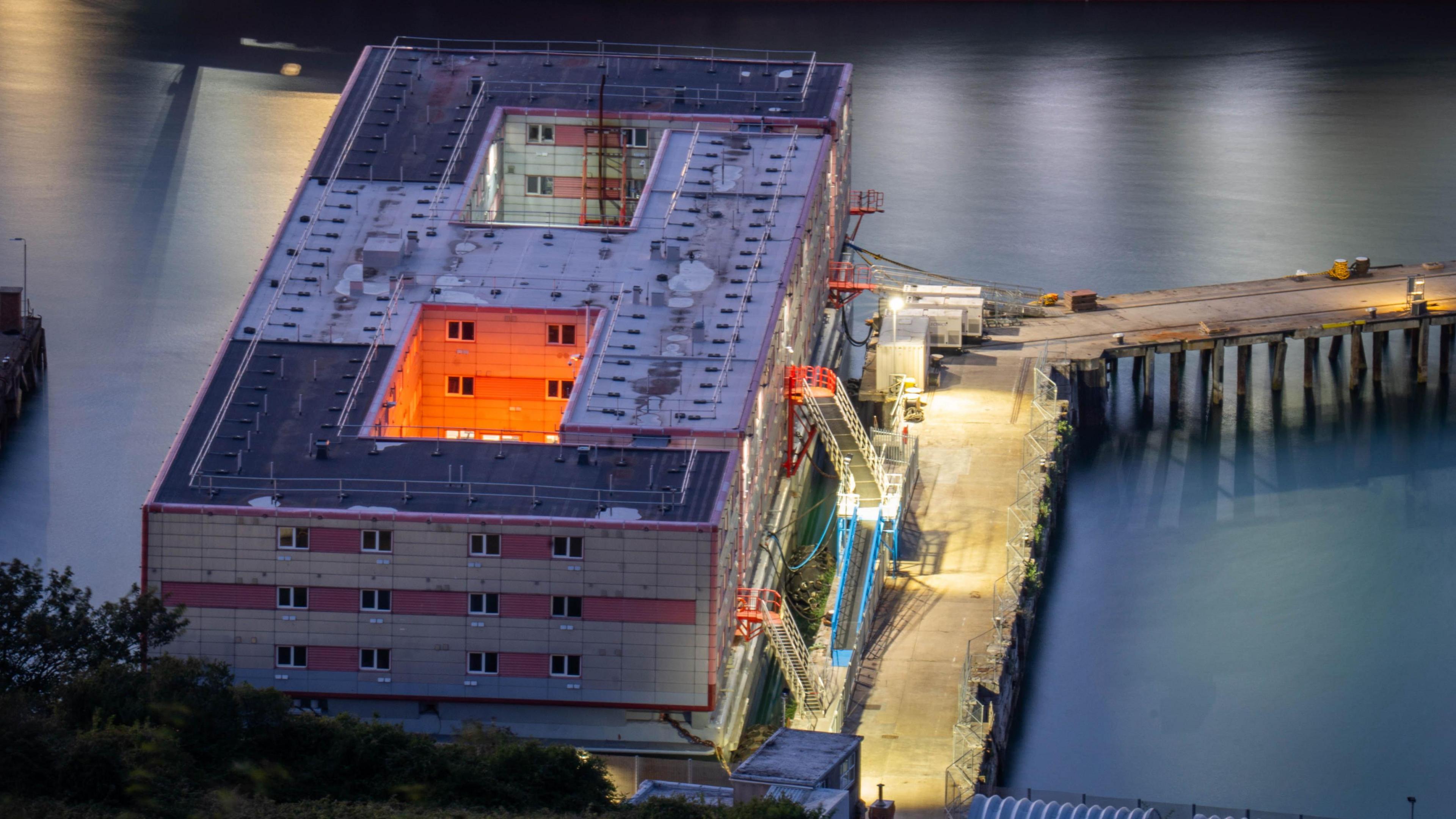
The BBC has learnt barge residents have been moved to a variety of locations across the UK
Where will the asylum seekers go?
In September, the Home Office said asylum seekers on the Bibby Stockholm would be moved off the barge to receive their asylum decision.
The decision will determine whether or not they can continue living in the UK and each person will be moved off the barge before being told their result.
They would either be asked to leave the UK or would be "dispersed across the country", the Home Office said.
No asylum seekers will be moved to Portland, Weymouth, or the wider Dorset Council area, the government added.
It has not revealed whether that includes the entire county of Dorset, leaving questions over whether migrants could be housed in the Bournemouth, Christchurch or Poole (BCP) Council area.
BCP Council declined to comment.
In October, the BBC learnt barge residents had been moved to a variety of locations across the UK, including Worksop, Sheffield, Northumberland, Cardiff, Salisbury, Bristol and Wolverhampton.
Why is the barge shutting down?
The decision to close the barge was announced in July, shortly after the Labour government came into power.
It is part of a commitment to “clear the backlog and fix the asylum system”, according to the Home Office.
Ending its use is part of a plan to save about £7.7 billion in asylum costs over the next ten years.
It would have cost more than £20m to carry on using the barge next year.
The previous Conservative government introduced the Bibby Stockholm to ease the pressure on the asylum system, external.
Have those on board got any support?
Residents on the barge will be given information explaining how their asylum claim will be progressed.
The asylum seekers will have access to legal representatives, the government added.
Private rooms for in-person or over-the-phone discussions will also be provided.
It was not mentioned whether the men would receive any counselling or mental health support.
According to Citizen's Advice, once an asylum seeker has been told they can stay in the UK, they have 30 days to find new accomodation.
If they cannot arrange something, they are advised to contact their local council for help.
Get in touch
Do you have a story BBC Dorset should cover?
You can follow BBC Dorset on Facebook, external, X (Twitter), external, or Instagram, external.
Related topics
More on the Bibby Stockholm
- Published29 October 2024
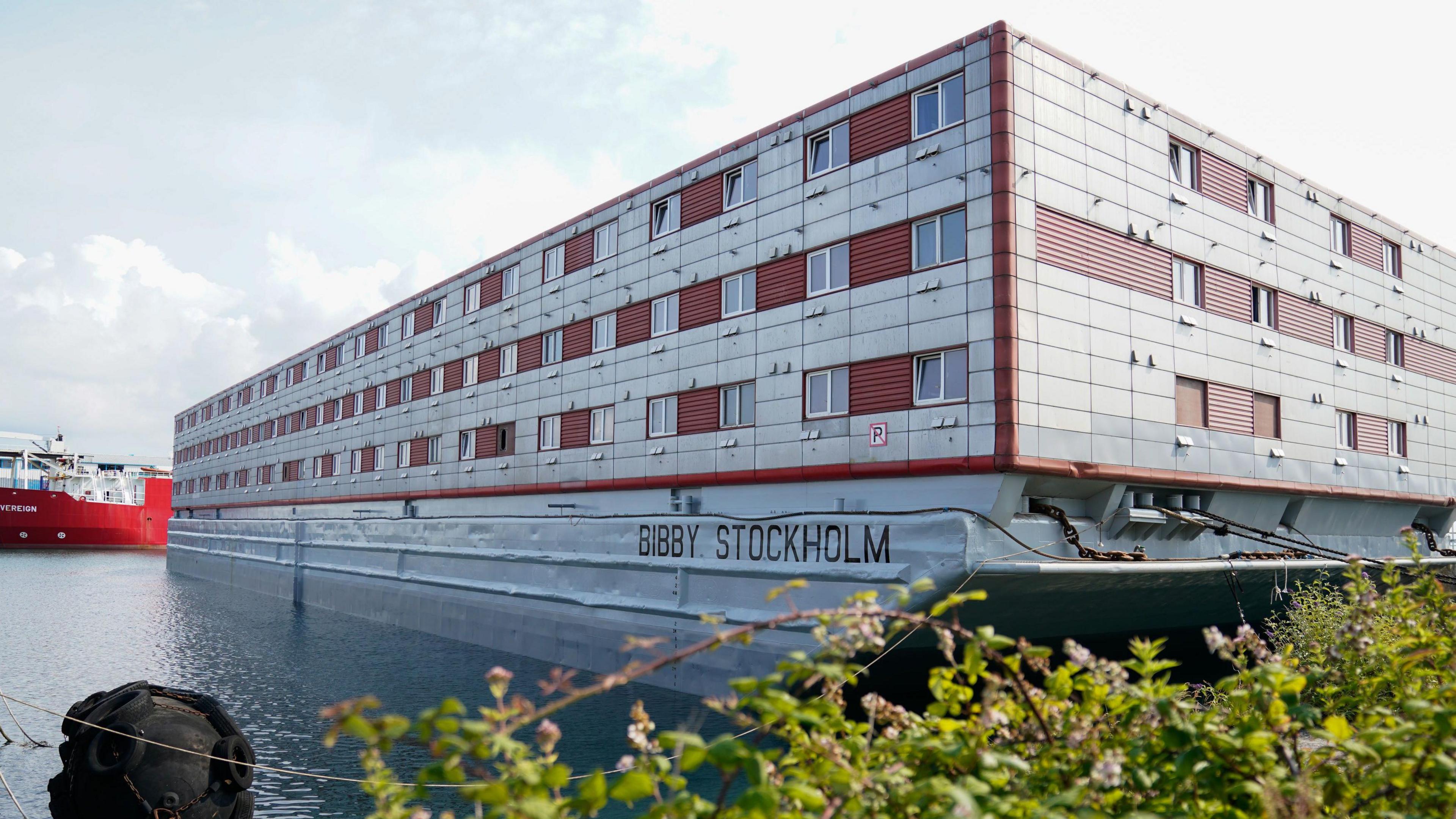
- Published23 July 2024
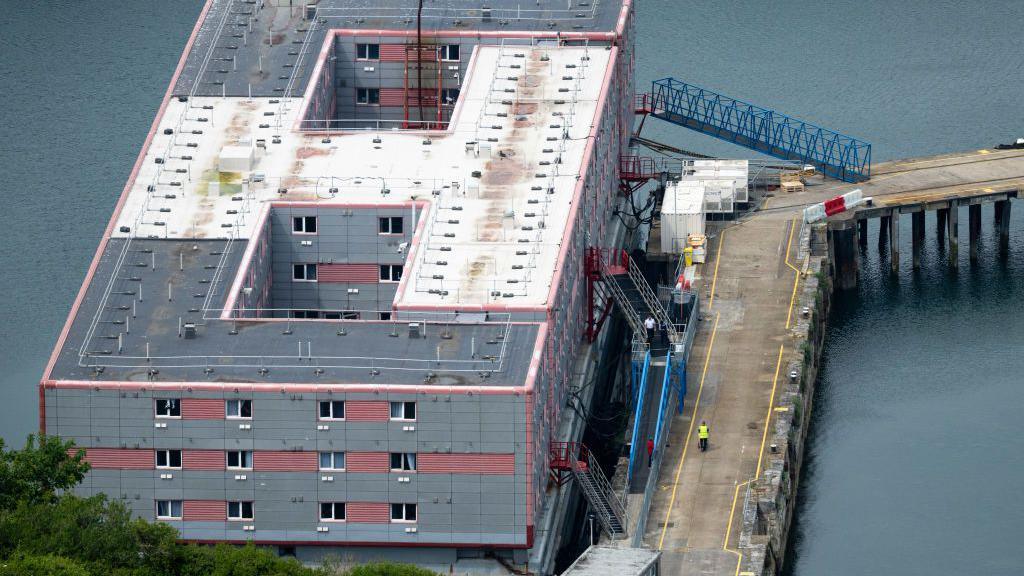
- Published15 July 2024
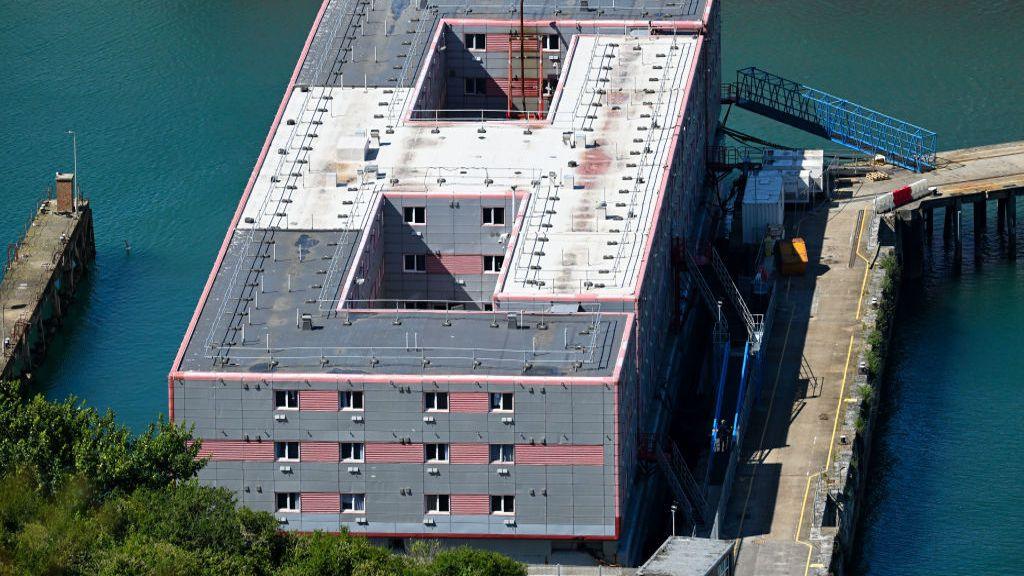
- Published7 August 2023
